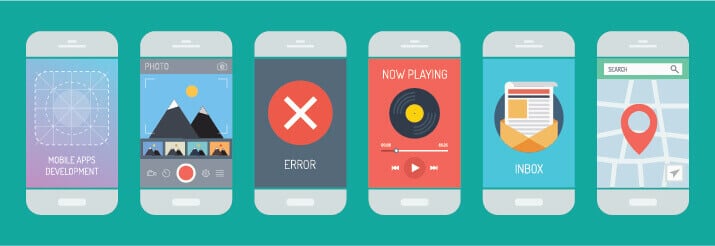What is a mobile website? What is a mobile app? Are they the same thing? These are some of the common questions I hear from clients in this new age of the smart phone and tablet. If you aren’t technically keen on the subject, confusion between the two is inevitable as they are similar and yet different.
The Main Differences
A mobile website is a specialized version of your current website that is optimized for your smart phone or mobile device. Since smart phones have smaller screens and are touch-based devices, having a version specifically for mobile devices will give your users a much better browsing experience. Mobile websites can be accessed on multiple mobile platforms (such as iPhone, Android, Blackberry, etc.) because only a web browser is required to access the mobile website.
A mobile app is a software application that you download (from the App Store or Android Market) and install on your mobile device. A mobile app can be practically anything from a calendar, a video game, an online bank account manager and even a website. Mobile apps have to be written specifically for a mobile device platform. For example, an iPhone mobile app will not work on an Android phone and vice versa.
Which one do you need? Do you need both?
With smart phones becoming more affordable and wireless speeds getting faster, having an alternative mobile website is eventually going to be the norm. The main reason is because of usability and speed. Normal websites are designed for use with larger screens and a mouse/keyboard. They are also created with faster Internet connections in mind. Mobile websites take advantage of the smaller screen and touch-based nature of the device making navigation and browsing much easier and faster. They also require the file sizes of the images and other website content to be smaller for faster downloads.
However some websites might have special features that would make more sense as a mobile app or might only work as a mobile app. Types of websites such as an e-commerce website or bank websites are good examples. Take for example Chase (m.chase.com). You can log into your account online using their mobile website to access your account or you can download the Chase mobile app. Are both really necessary? In this case I would have to say yes. I tried accessing my bank account using both methods and here are the results from this quick test:
Mobile Website:
- Pros: Accessible through any web browser on any mobile device, don’t need to download/install anything
- Cons: Slower, less responsive. Have to use web browser to navigate there first (or use bookmarks). Can’t use built-in camera to take pictures for deposits.
Mobile App:
- Pros: If used frequently, much easier and faster to use, requires single tap to access (after installed). More responsive because of native device code. Takes advantage of built in camera to make deposits.
- Cons: Must download and install first. App must be written and approved for specific device(s).
The only real downside to using the mobile app is that you have to download it and install it first. After that part is completed though, the mobile app is much faster and more responsive than its mobile website counterpart. So if you are frequently managing your account online, using the mobile app makes total sense. The main advantage of using the mobile website is that you could quickly check your account on any mobile device without the need to install anything. For example, you need to make an online payment with your account on your friend’s phone because your phone’s battery is dead. Since your friend has a different bank and doesn’t want you to install anything on his phone, using the mobile website to make the payment is the best and only option.
Other factors to consider are time/cost and compatibility. Mobile app development costs considerably more and takes longer then mobile website development. A mobile app is only compatible with the platform it is created for. If you want your app to work on an iPhone, Android and Blackberry, three different apps will need to be developed. Where with a mobile website, a single version will work across all mobile platforms.
Summary
Most websites will do just fine with just having an alternative mobile version of the website. Depending on the website, its content, and features, however, having a mobile app as well could be highly beneficial. Sometimes it all depends on the amount of usage a particular area of the website is being used. For example, there could be a part of the website where users can book and make appointments. With data analytics you find that this part of the website gets the most traffic is being used most frequently. Creating a separate mobile app specifically for booking and making appointments would be a viable alternative for your users as it will most likely get downloaded and used.



